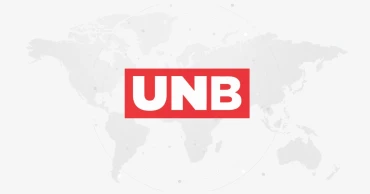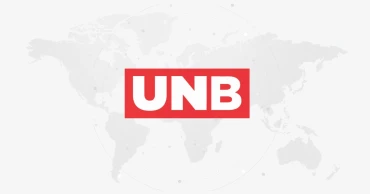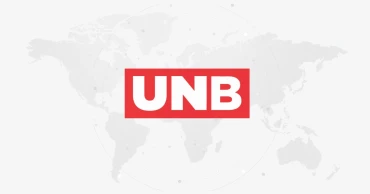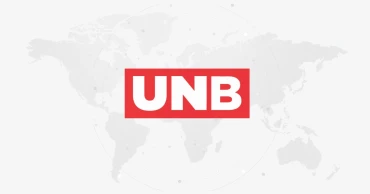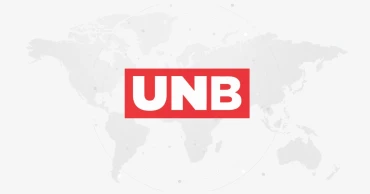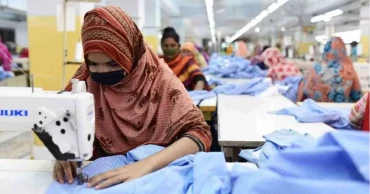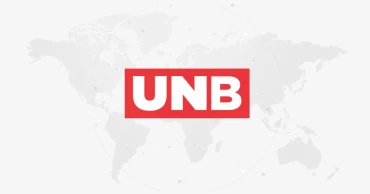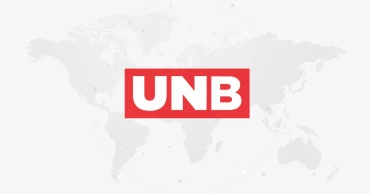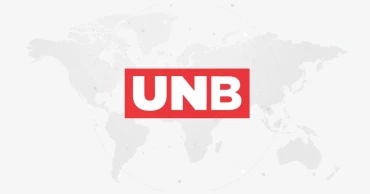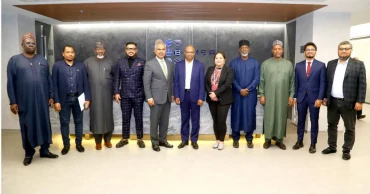Apparel
Bangladesh top garment exporter in UK market in Jan-Oct: BGMEA
Bangladesh has retained the status of the top exporter of garment items in the UK market in consideration of quantity in the period of January–October 2023.
Bangladesh Garment Manufacturers and Exporters Association (BGMEA) revealing the UK’s import data showed Bangladesh exported 178.39 million kilogrammes (kgs) of garment items to the UK while China shipped 159.25 million kg.
In this regard, BGMEA President Faruque Hassan told UNB that considering the performance of the UK sourcing countries, China is at the top. It is followed by Bangladesh, Turkey, India, and Pakistan.
Bangladesh had secured its position as the top garment supplier in Europe in terms of volume (quantity) in 2022.
Milestone for RMG as Bangladesh becomes top source of Knitwear into EU market
“Our position in the UK market remains the same because, in 2022, the UK's imports from Bangladesh exceeded imports from China, and this trend continues in the first 10 months of 2023,” he said.
However, Bangladesh's share of the UK's total apparel imports is 23 percent in terms of value and 28 percent in terms of volume, said Faruque.
“So far, we have been able to secure our position through potential cost savings, timely product delivery, and maintaining quality, which has kept us ahead of the competition in the fashion world,” said BGMEA President.
Govt announces Tk 12,500 as minimum salary for RMG workers
He said that the UK market still has opportunities as they approach the saturation point, and the global trade policy and competitive landscape will change over the coming decades. The key to capturing more global market share and sustaining growth will be to shift to higher-value products and higher-value markets by acquiring capabilities in backward and forward linkage industries.
Bangladesh can add higher value by moving into the mid-high price segment of the market, where a T-shirt or a polo shirt can fetch higher FOB revenue only because of the complex process (e.g., advanced fabrication, embroidery, printing, even functionality), he said.
Incidentally, it would also like to mention that, considering the average price of UK apparel imports, Bangladesh offers the lowest price compared to other competitors.
“Our average price is 21.39 percent lower than China, 32 percent lower than Turkey, and even 26.75 percent lower than India. This not only proves that we are not competitive in the global market, but at the same time, our absence in the mid-high price segment of the market is starkly evident. At this point, we need to strategise to capture the mid-high price segment to take the industry forward,” said BGMEA President.
Despite anticipated challenges in 2024, int’l market demand for RMG products could rise: BGMEA Director
END/UNB/AI/MB/JA
2 years ago
Guardian article on female garment workers in Bangladesh not only offensive but also a gross overgeneralization: BGMEA Chief
A recent article published by The Guardian, framing the lives of female garment workers in Bangladesh between factory and brothel, is not only offensive but also a gross overgeneralization, BGMEA President Faruque Hassan has said.
It risks overshadowing the remarkable transformation of women's empowerment propelled by the nation's RMG industry, he said in a statement, condemning the article that he said “defames women at work.”
"It’s true that individual hardships exist, but framing women workers within a single struggle is potentially harming them by provoking radicalism, causing social stigma and mental illness," Faruque said.
Such a narrative is a disservice to their lives and dreams they cherish, he said.
“The report itself appears to be incorrect to us as it says that the mentioned female worker works for a large factory, it didn’t mention the name; and there is hardly any export-oriented garment factory located at the place as the report mentions, except for a few tailoring facilities catering to the local market only,” he said.
“The report does not only perpetuate harmful stereotypes against women at work, but also defames an industry that employs millions of women and contributes significantly to national economy," said the BGMEA chief.
Rest of the BGMEA chief's statement
Consider this: in a moderate Muslim country, Bangladesh has emerged as a model in the region in women’s empowerment and gender parity, he said.
“The World Economic Forum's recent Gender Gap Report places Bangladesh at the top in South Asia for gender equality for the 9th consecutive year, ranking the country 59th globally.
“The labor force participation rate of women has soared from a mere 8% in 1983 to a remarkable 38% today.
Read: Despite anticipated challenges in 2024, int’l market demand for RMG products could rise: BGMEA Director
“Women’s contribution to Bangladesh's GDP growth is estimated at a staggering 34% and it continues to rise.
“For millions of less privileged women having less literacy and skills, the RMG industry is the first formal sector of employment.
“Through this industry, women have emerged as the critical support for their families, achieving economic independence and social empowerment.
“Early marriage and motherhood are declining, primarily education enrolment is on the rise and as per many experts, the industry has led to increase in girls’ schooling.
“Maternal and child health, too, have gained momentum, nourished by improved nutrition and a heightened awareness of healthcare.
“The ascent isn't confined to the shop floor. Women are scaling the ranks, their talents are gracing technical departments in the industry like industrial engineering, product designing and merchandising, as well as taking on leadership positions.
“When they leave the factories, they leave footprints of entrepreneurial spirit, transforming into owners of their own businesses.
Read: Sustainable fashion: Bangladesh's RMG sector leads with 24 new LEED green factories in 2023
“This industry has become a launchpad for leadership.
“While writing a report remotely, without having proper understanding of the background and reality, to deliberately portray the bleak picture, one must acknowledge the broader narrative – millions of women rising from poverty, gaining skills, and forging a path towards brighter futures for themselves and their families.
“Beyond all these, the industry has taken an unprecedented stance to support aspiring women workers to pursue their dream for higher education.
“Currently around 90 young female RMG workers are pursuing higher studies in the Asian University for Women under the Pathways for Promise program.
“While the girls pursue their bachelor studies with full scholarship from the university, the employer factories continue to pay the full wages to them throughout the entire tenure of their study.
“The ‘promise’ is to make them fearless and think big. Not only that, through this industry women have got the opportunity to emerge as the critical support to the family.
“There are numerous instances that the sons and daughters of workers are pursuing higher education in engineering, medical science and many more disciplines through the humble support of the factories.
“This is our story, one of transformation, of empowerment, of women rising like threads on a loom, weaving a new Bangladesh. Let us move beyond sensationalized headlines and acknowledge the multifaceted reality of women at work.
Read more: Milestone for RMG as Bangladesh becomes top source of Knitwear into EU market
“Let us celebrate their achievements, address their challenges, and work towards a future where all Bangladeshi women can thrive, in factories and beyond.
“Our garment workers are the heartbeat of our industry, and I, for one, find my strength in their courage, their resilience, and their unwavering spirit. They are the threads that bind our nation together, the driving force propelling us towards a future where gender is not a barrier, but a bridge – a future where Bangladeshi women stand tall, not just as workers, but as architects of their own destinies.”
2 years ago
Despite anticipated challenges in 2024, int’l market demand for RMG products could rise: BGMEA Director
Despite the anticipated challenges in 2024, there are indications that international market demand for RMG products will rise, a director at BGMEA said today (January 01, 2024).
"If we can uphold internal supply chains, increase investments in new products and markets, we will be able to sustain the desired growth," said BGMEA Director Mohiuddin Rubel in a statement.
He said it is difficult to predict the trajectory for 2024, given the uncertainties in the international economic and geopolitical landscape.
BGMEA chief emphasizes innovation, tech upgrade, skills training to retain global competitiveness
Factors such as supply chain disruptions and inflation play a crucial role here.
Additionally, there are pressures on the internal economy, including a decline in foreign exchange reserves and the significant challenge of keeping inflation in check, Rubel said.
Furthermore, he said, the protection of industries is very important to attract investments and maintain competitiveness.
The global scenario for the apparel sector in 2023 was not as good as 2022.
According to the WTO, global apparel exports reached $576 billion in 2022.
Rubel said, clothing imports from Europe and America have already decreased.
Refrain from programmes which hamper country, economy: BGMEA President
He said the two main markets for Bangladesh when assessed collectively were not able to put any remarkable impact to "our growth".
On the other hand, Rubel said, RMG exports to non-traditional markets saw a substantial increase.
In summary, he said, growth in non-traditional markets has contributed to the overall growth in Bangladesh’s RMG exports.
Sustainable fashion: Bangladesh's RMG sector leads with 24 new LEED green factories in 2023
2 years ago
BGMEA president seeks American Apparel & Footwear Association’s support in responsible purchasing practice
Bangladesh Garment Manufacturers and Exporters Association (BGMEA) has written to President and CEO of American Apparel & Footwear Association, Stephen Lamar, seeking support in terms of responsible purchasing practices.
“To ensure uninterrupted and smoother operation in the industry, it is important that prices of all goods which will be shipped from 1 December, 2023 are duly adjusted/ up-charged covering the increment in wage component,” BGMEA President Faruque Hassan wrote.
The American Apparel & Footwear Association (AAFA) is a national trade association representing apparel, footwear and other sewn product companies, and their suppliers, which compete in the global market.
From now onward, the BGMEA president said, all business negotiations and deals will have to be made adhering to the new minimum wage policy.
Read: Owners are free to close their garment factories until vandalism ends: BGMEA
“Therefore, I would humbly request you to kindly pursue the AAFA members to collaborate with their Bangladeshi suppliers with due empathy and consideration,” the BGMEA chief wrote in his letter.
“With every effort and action we take, we mean to complement our long term goal, which is to grow mutually and sustainably. We are working with our government relentlessly to ensure more favorable environment for business,” Faruque said.
“You are following the improvements made and progress by the government to create better infrastructure and policies supporting envisioned growth and efficiency. I am sure with your continued support and collaboration we will continue to thrive," said the BGMEA President.
In his letter to Lamar, the BGMEA chief said the minimum wage in 2023 for garment workers was declared by the government on November 7.
Read: BGMEA provides financial assistance to families of deceased workers
The declaration was made based on the proposal submitted by the Minimum Wage Board, and was widely consulted and agreed by the stakeholders including workers’ and employers’ representatives, he said.
As per the new minimum wage, the gross minimum monthly wage of the 7th grade workers has been set at Tk 12,500, equivalent to around USD 113.63 – a 56.25 percent increase of the gross wage while the basic wage has gone up by 63.41 percent.
The new minimum wages comes at a time when the global economy is going through an unprecedented situation, so is Bangladesh’s economy, said the BGMEA chief.
“The RMG industry in Bangladesh is feeling the heat of this crisis, especially with soaring inflation, all our input costs have increased significantly including fuel, gas, electricity, transportation,” he said.
Read: BGMEA ready to implement new pay structure govt announces by Dec: BGMEA President
From the first of July this year, Bangladesh Bank has increased interest rates which made trade and investment finance more costly.
“You are aware that since 2013, the industry had to make a huge investment to ensure international standard workplace safety, which we have done diligently despite all the difficulties,” he wrote.
“Now to align with global climate action agenda, our factories are making further investment to reduce GHG emission and be more resource efficient. Not only that, for ensuring workplace safety, comfort for our workers and to reduce fatigue, factories are upgrading machine, process and production method,” said the BGMEA president.
“Through all these efforts, Bangladesh has emerged as a reliable, sustainable and one of the most preferred sourcing destinations,” Faruque said, adding that all these initiatives and investments have impact on the business, in relative and absolute term.
Read: BGMEA seeks NBR support to sustain RMG industry's global competitiveness amidst ongoing challenges
“Now, with the increase in the minimum wages, this industry has taken the challenge to ensure better living standards of the workers while maintaining competitiveness,” he said.
The raise in the minimum wage, especially 63.41 percent raise in the basic wage, leads to higher benefit for the workers in terms of overtime benefit, earned leave encashment, festival bonus and other allowances, Faruque said.
“The implementation of the new wage structure would exert a huge financial impact on the factories. This will be challenging for many of our factories to implement the new wage in the current economic and financial circumstances,” he wrote in the letter.
However, Faruque said, ensuring decent living standards of the workers is a top priority for them, as well as for global brands and retailers.
“Since we have accepted the new minimum wage, we will ensure implementation of it, and we need your support in terms of responsible purchasing practice,” the BGMEA president wrote in the letter to the CEO of American Apparel & Footwear Association.
2 years ago
BGMEA President clarifies media report on ‘apparel ban’
Clarifying a media report, BGMEA President Faruque Hassan on Sunday (November 05, 2023) said any attempt to generalize incident on the industry and the country at large is unacceptable.
The news mentions about technical glitches such as choking and ingestion hazard found it specific product item for babies sourced and retailed by specific brand in specific country.
"As the news report mentions about 12 countries withdrawing or recalling apparel made in Bangladesh, there is no reference to such claim, and we could not trace any evidence in support of this claim," he said.
BGMEA ready to implement new pay structure govt announces by Dec: BGMEA President
"We feel the urge to share this clarification so that misrepresentation of the fact is not repeated,' said the BGMEA chief.
He also clarified the reference to OECD which was mentioned in the news report.
OECD maintains a “Global portal on product recalls” and the OECD members’ product recall notices are listed in this portal.
IMF delegation meets BGMEA President to discuss challenges and prospects of RMG sector
Product recall for any valid reason is a standard practice and there are hundreds of such recalls listed in the OECD website as of today, said the BGMEA President.
Furthermore, the OECD website mentions “Health Canada recalled more than 200,000 George Brand Sleepers on Wednesday for posing a risk of choking and ingestion.
The recall of the product, sold at Wal-Mart, is for sizes 0-5T and affects two styles for boys and two for girls.
Zipper pulls and foot grips of the sleepers may eventually separate after frequent washing, leading to choking and ingestion hazards, the agency said, adding it has not received any reports of injury in Canada.”
"Therefore, the products were recalled due to certain risk of hazard, which is not the mistake of Bangladeshi manufacturer. Every product made in Bangladesh must pass through a stringent quality control process and laboratory tests including those of consumer health and safety," he said.
All exportable products must meet the standards of the buyers and relevant legal requirement of the export markets.
BGMEA seeks NBR support to sustain RMG industry's global competitiveness amidst ongoing challenges
Any product failing to comply these health and safety requirement are usually rejected by buyers or denied entrance at the destination port.
"So any misinterpretation like ‘apparel made in Bangladesh is banned in the mentioned countries’ is false," Hassan said.
The alleged products were shipped from Bangladesh in early 2022 and were retailed in Canada from November 2022 to June 2023.
Brunei High Commissioner meets BGMEA President to discuss trade-investment potential
The product recall notice of Health Canada also mentions that “As of September 21, 2023, the company has not received any reports of incidents or injuries in Canada”.
"I hope this statement of clarification will help all to clear any confusion on this matter and not to be misguided," said the BGMEA Chief.
2 years ago
Dip in US market fails to dent apparel sector's growth momentum
Bangladesh’s apparel exports in the first nine months of the current fiscal, i.e. July 2022-March 2023, jumped by around 12 percent - an impressive clip by anybody's standards. It is even more impressive when you consider that apparel exports to the US, which has been its largest single market, actually declined 5%.
On the other hand, exports to the European Union overall, kept up with the pace of the industry. Apparel exports to the European Union during July-March of the 2022-23 fiscal also jumped by almost 12 percent (11.8% to be more precise), to $17.61 billion, compared to the $15.75 billion recorded in July-March of the 2021-22 fiscal, according to BGMEA Director Mohiuddin Rubel.
The overall growth in apparel export has been an impressive 12.2%, from $31.43 billion in the first 9 months of FY 2021-22, to $35.25 billion in the first 9 months of FY 2022-23.
Read More: Speakers emphasise safety, security in industries to avert another Rana Plaza tragedy
This highly impressive growth figure has been achieved despite the industry's exports to the US having actually declined by 5 percent - to $6.25 billion in the first 9 months of the current fiscal, from the $6.6 billion recorded last year.
Bangladesh’s apparel exports to the UK and Canada reached $3.84 billion and $1.08 billion with 14.04 percent and 17.68 percent growth respectively.
Among the major markets in the EU, apparel exports to Germany declined by 4.16% year-over-year while exports to France and Spain grew by 25.23% and 18.82% year-over-year respectively. On the other hand, exports to Poland declined by 14.86%.
Read More: BGMEA writes to US policymakers for duty-free access for US cotton-made apparel.
The most significant growth was reported in the nontraditional sector. The apparel export to nontraditional market increased by 34.74% to US$6.44 billion in July-March period of FY 2022-23 from US$ 4.78 billion in the same period.
Mohiuddin Rubel, BGMEA director, said: “BGMEA is working to facilitate the exploration of new markets, as well as working on policy reforms to facilitate and simplify business.”
“Our efforts will be continued, and it’s time for all of us in the industry to promote and highlight our strengths in new products and new markets before the global customers (existing and new ones) to explore new opportunities. That will help sustain our growth in the longer term,” he added.
Read More: Apparel exports to EU grew 35.69% in 2022.
2 years ago
Apparel, textile sector development: Bangladesh, Taiwan can thrive together, says BGMEA
The Bangladesh Garment Manufacturers and Exporters Association (BGMEA) has said Bangladesh and Taiwan have great potential to complement each other for the development of the apparel and textile industries of the countries.
The organisation made the observation when a delegation of the Taiwan Textile Federation (TTF) led by its President Justin Huang called on BGMEA President Faruque Hassan in Dhaka Thursday.
They discussed various issues of mutual interest regarding the apparel and textile industries.
The two sides talked about how both associations could work together to build interactive connections between apparel and textile businessmen of Bangladesh and Taiwan to facilitate meaningful business interactions.
Faruque said Bangladesh is the second largest exporter of readymade garments (RMG) in the world whereas Taiwan has a strong textile industry, particularly with considerable strengths in the non-cotton segment.
Read more: Netflix Movie: BGMEA protests derogatory remarks on Bangladesh RMG sector
Since Bangladesh is strongly focusing on shifting from cotton to non-cotton products and value-added products, Taiwan with its big textile industry producing man-made fibres, polyester filament, nylon fibre and other fabrics can meet the demand of Bangladesh's RMG sector, he added.
Also, the BGMEA and TTF expressed interest in organising trade exhibitions to develop ties between RMG and textile businessmen of Bangladesh and Taiwan so that both sides can work together to create a win-win situation.
BGMEA Vice-President Shahidullah Azim, directors Asif Ashraf and Abdullah Hil Rakib, Timothy WD Tso, director at TTF and Emily Chen of the Promotion Section at TTF were also present at the meeting.
3 years ago
BGMEA eyes expanding RMG exports to Japan
The Bangladesh Garment Manufacturers and Exporters Association (BGMEA) has said the country's apparel industry has continued its efforts to explore new and promising markets like Japan and seize every available opportunity.
BGMEA President Faruque Hassan said: "We have been carrying out apparel diplomacy and trade missions to find new opportunities for Bangladesh's RMG industry and realise untapped potential."
Faruque made the observations while exchanging views with Hajime Suzuki, chief director of International Sales and Marketing at RX Japan, in Dhaka Monday (January 23, 2023). Kurena Watabe of RX Japan was also present.
Read: RMG manufacturer CKDL partners with Singapore firm to ensure workers' financial wellness
RX Japan is a leading exhibition organiser in Japan.
The two sides discussed possible collaboration between BGMEA and RX Japan to initiate trade communication between businessmen in Bangladesh and Japan, particularly those involved in the fashion industry.
Bangladeshi businessmen would be able to showcase strengths and capabilities by participating in apparel exhibitions in Japan while Japanese buyers and investors would get the opportunity to explore their trade potential in Bangladesh, they said.
Read more: BGMEA, Jetro want to expand Japan-Bangladesh trade
3 years ago
HSBC, AUW launch one-year master of science in apparel, retail management programme
The Hong Kong and Shanghai Banking Corporation (HSBC) and The Asian University for Women (AUW) together Saturday (January 21, 2023) announced the launch of the "HSBC-AUW School of Apparel and Retail Management," a one-year master of science in apparel and retail management programme.
The programme will be guided by a global academic committee chaired by Dipak C Jain, former dean of the Kellogg School of Management at Northwestern University. He also served as the dean of INSEAD in France.
The HSBC-AUW School of Apparel and Retail Management will prepare young female professionals with expertise in fashion, merchandising, supply chain management, brand management, and occupational health and safety issues, said a media statement Saturday.
Read: Diesel import from India via pipeline from June: Nasrul Hamid
The programme was launched at the "HSBC-AUW School of Apparel: Leading the Future of Fashion" at Chattogram hotel.
Education Minister Dipu Moni sent a video message to the event.
Commerce Minister Tipu Munshi, Deputy Minister for Education Mohibul Hasan Chowdhury, AUW founder Kamal Ahmad, Bangladesh Garment Manufacturers and Exporters Association President Faruque Hassan, former Denmark prime minister Poul Nyrup Rasmussen, US state department senior official Katrina Fotovat, The Daily Star Editor Mahfuz Anam, and HSBC Bangladesh CEO Md Mahbub ur Rahman, joined the programme.
Read: 5th BMCCI LegalTalk seminar on tax law, foreign investment held
AUW Vice-Chancellor Rubana Huq said: "Today, the apparel industry in Bangladesh needs a homegrown talent pool, which will serve the needs of the sector. So, to prepare cohorts ready to take on the challenge of employability in Bangladesh, AUW is happy to launch the School of Apparel with HSBC Bangladesh."
Amanda Murphy, head of commercial banking (South and Southeast Asia) at HSBC said: "The global apparel industry is evolving rapidly alongside emerging technologies, changing consumption patterns and an increasing focus on sustainability."
"We are proud to partner with the Asian University for Women to launch the HSBC-AUW School of Apparel and the Masters programme to equip future talent with the expertise to drive continued innovation in Bangladesh's largest export industry. Importantly, this programme supports the professional and leadership development of women, providing better access to opportunities through inclusion and fostering long-term growth for Bangladesh and its communities."
Read More: In the era of RMG, showcasing the Majestic Silks of Bangladesh
Academic excellence, industry relevance and social significance would be the defining features of the programme. The graduates would be technologically savvy, have superior communication skills and gain up-to-date, contemporary knowledge and skills needed for apparel and retail management.
Under the programme, 13 courses will be offered to students of AUW. And 50 students will be enrolled in the inaugural year.
HSBC will help set up the school by designing Mac labs and providing support for curriculum and faculty, IT and class infrastructure and education materials.
Read More: Bangladesh to become 9th largest consumer market globally by 2030: HSBC
3 years ago
Nigerian delegation discusses Dhaka-Abuja trade potential with BGMEA
A delegation comprising high officials of different ministries of the Nigerian government paid a visit to Bangladesh Garment Manufacturers and Exporters Association (BGMEA) President Faruque Hassan in Dhaka Monday (January 16, 2023).
The delegation included Abubakar Aliyu Aziz, director general of the National Identity Management Commission, MaskaUbale Ahmed Shehi, executive commissioner of the Communications Commission, Alhassan Haru, director of Communications Commission, and Roberts Moses Achanya, president of the Nigeria-Bangladesh Trade and Technology Forum.
BGMEA Director Barrister Vidiya Amrit Khan, Bangladesh Knitwear Manufacturers and Exporters Association Vice-President Fazlee Shamim Ehsan and Fakir Fashion Managing Director Fakir Kamruzzaman Nahid were also present.
Read more: Bangladesh, Nigeria to explore possibility of signing framework agreement on FTA or PTA
They had discussions about possible areas of collaboration between Bangladesh and Nigeria for bilateral trade benefits, particularly in the apparel and textile industry.
Faruque said there is potential to import more cotton from Nigeria which is a cotton-producing nation. "Nigeria is also a potential market for Bangladesh's apparel export."
He called upon the Nigerian government to reduce import duty on readymade garments (RMG) from Bangladesh and requested cooperation from the delegation in this regard.
Read More: Bangladesh, Nigeria to explore possibility of signing framework agreement on FTA or PTA
3 years ago
